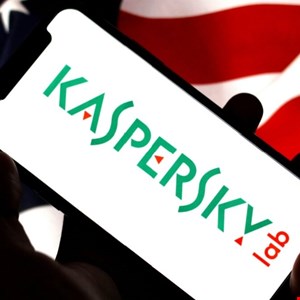- Select Prime members can get Kindle Unlimited for 3 months at no cost - here's how
- Modernization means putting developers in the driver’s seat
- Get a free iPhone 16 Pro for free from T-Mobile, no trade in required - here's how
- The LG C4 OLED for $800 off is one of the best Prime Day TV deals right now
- Prime members can save $10 on any $20 or more Grubhub+ order for a limited time - here's how
Kaspersky to Quit US This Weekend

Security vendor Kaspersky is set to wind down its business operations in the US following a Commerce Department decision to prevent it selling products and services in the country.
A statement from the Moscow-headquartered firm said it made the “sad and difficult decision” to leave the US “as business opportunities in the country are no longer viable.”
Starting on July 20 “Kaspersky will gradually wind down its US operations and eliminate US-based positions,” it added.
The firm has operations in dozens of countries around the world, including the UK, and employs thousands of staff to serve hundreds of millions of business customers and consumers.
Read more on Kaspersky: US Court Upholds Kaspersky Lab Government Ban
However, long-standing US concerns over alleged company ties to the Kremlin – which it has always denied – came to a head last month.
On June 20, the Bureau of Industry and Security (BIS) Office of Information and Communications Technology and Services (OICTS) issued a Final Determination banning Kaspersky’s US subsidiary from providing any products or services in the US.
It claimed the firm “poses an undue or unacceptable risk to national security” due to concerns that it might – at the Kremlin’s behest – be forced to provide access to the information of US customers. The determination also cautioned that Kaspersky may be forced to install malware on customer devices or withhold important updates.
The Commerce Department also added Kaspersky to its Entity List, meaning no US organizations can do business with it. The Office of Foreign Assets Control (OFAC) sanctioned 12 Kaspersky executives on June 21.
At the time, Kaspersky said it intended to pursue “all legally available options” to fight the ban and denied any activity threatening US national security.
The firm sees itself as a victim in an escalating geopolitical conflict between Russia and the West. In 2017, the US Department of Homeland Security (DHS) issued a directive banning its products for government use.
In 2022, the US Federal Communications Commission (FCC) added Kaspersky to a “List of Communications Equipment and Services that Pose a Threat to National Security.”
Image credit: Muhammad Alimaki / Shutterstock.com

